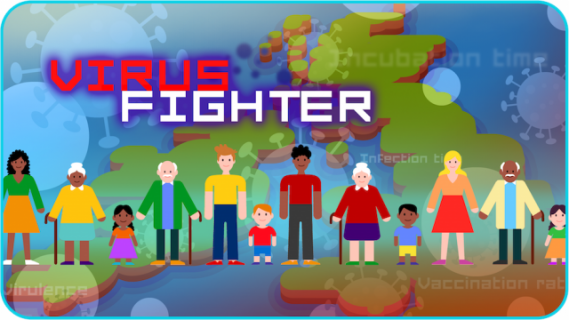The goal of the ORION task (T3.5) was to support making research funding and performing institutions more permeable to Responsible Research and Innovation principles by encouraging collaboration of ORION partners with stakeholders in the quadruple helix through co-creation approaches. Two projects have been supported through this ORION task; “Virtual Activity Co-Creation Initiative for Novel Engagement” (VACCINE), an online game to engage young members of the public with the science behind infections, immunity and vaccinations, which was a collaboration between Babraham Institute scientists, students from a school in Cambridge and a game developer. The second project, “Melting Pot for ICT in Health Research” (MELTIC), was a collaboration with small isolated communities in Europe to co-create new ideas for ICT in health research and the use of public spaces.
In both cases the involvement of novel stakeholders has brought novel ideas and perspectives to the projects, which has helped to ensure their outputs are useful and appealing to their intended audiences. However, the perceived impact (benefits) of co-creation in the participating scientists varies depending on the discipline. ICT researchers from the telemedicine unit at Instituto de Salud Carlos III, ISCIII, involved in the MELTIC project, have benefited considerably from the co-creation process, even despite its online or hybrid version forced by the COVID-19 pandemic. Their project partners have indicated the intention to continue collaborating after the project finishes. However, in the case of VACCINE (Virus Fighter game), conducting workshops remotely has resulted in weaker connections between students and BI scientists. We believe this has played a role in making BI scientists less clear on the benefits of co-creation – despite the final game being a much improved version of the initial simulator developed by BI scientists thanks to the co-creation approach.
Accordingly, it is fair to conclude that the pandemic has presented a challenge for co-creation methodologies, where interpersonal communication is central. Nevertheless, one of the projects supported by this ORION novel co-creation initiatives fund, MELTIC, has indeed encouraged further collaboration of ISCIII - Core ORION partner - with stakeholders in the quadruple helix and these collaborations have supported an institutional department to open up to diverse views not previously considered, which is being taken stock of by ISCIII to showcase the benefits of co-creation to the whole institution. In the case of VACCINE, the co-creation approach has added considerable value to the game produced; new ideas have been incorporated which would otherwise not have been considered. Additionally, the experience has had a number of benefits for the young people involved, including showing them that they can make important contributions to real-life science projects.
